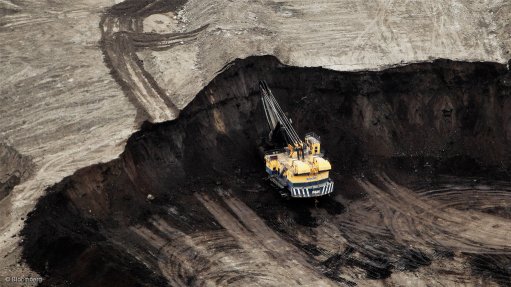
Photo by: Bloomberg
TORONTO (miningweekly.com) – Companies focused on Canada’s oil patch in Alberta are facing tough times ahead should the cratering oil price remain below forecasts for a prolonged time.
The latest firm to prune back investment spending in its 2015 budget was Canada’s largest oil and gas company Suncor Energy, which lopped $1-billion off its capital spending programme, as well as reduced sustainable operating expenses by between $600-million to $800-million to be phased in over two years, offsetting inflation and growth.
Companies that had spent billions of dollars expanding their operations in the Athabasca oilsands were caught on the back foot after the oil prices recently plummeted to five-year lows of around $45/bl – less than half the price it was just six months ago.
The lower oil prices, particularly if they continued to fall, would cause headaches for oil companies, threatening their bottom lines and discouraging future investment in the industry.
Late last year Total shelved its Joslyn oilsands project, while Statoil put the brakes on its Kai Kos Dehseh project. Last month, Husky and Penn West cut their spending budgets by billions of dollars.
Meanwhile, oil and gas giant Canadian Natural Resources on Monday dropped more than $2-billion from its budget this year.
Suncor said it was implementing a number of initiatives to achieve its cost-reduction targets, including deferring some capital projects that had not yet been sanctioned, such as MacKay River 2 and the White Rose Extension, as well as reductions to discretionary spending.
Budgets affecting the company's safety, reliability and environmental performance had been specifically excluded from the cost-reduction programme.
Suncor also highlighted that it would axe about 1 000 jobs this year, mainly from its contract workforce and by reducing employee positions. The company had placed an overall hiring freeze for roles that were not critical to operations and safety.
Suncor would also move significant projects in construction such as Fort Hills and Hebron forward to take full advantage of the current economic environment. These were long-term growth projects that were expected to come on line in late 2017.
ALBERTA ON THE EDGE
On Tuesday, the Conference Board of Canada warned that the recent plunge in oil prices was of particular concern for Alberta, threatening to send the province into recession.
“When prices dropped to such low levels during the last recession, engineering investment in the province nosedived by about $18-billion, some 30 000 jobs in Alberta’s mining sector disappeared and housing starts fell 75%.
“A similar (but not quite as severe) drop in investment, jobs, and housing starts could be in store for the province if prices fail to recover soon or continue to fall,” Conference Board economist Daniel Fields said in a report.
He pointed out that the latest job and housing numbers had yet to show any hit from the drop in oil prices, with both remaining steady and in line with seasonal patterns.
“But oil is Alberta’s main export. And going forward, the province is certain to suffer, especially on the employment front, from the drop in oil prices and it is likely to slip into recession,” Fields forewarned.
On a positive note, he mentioned that the drop in prices were expected to boost consumer spending as Canadians’ pocketbooks benefited from lower prices at the pump.
REGULATORY SCRUTINY
Meanwhile, several media reports on Monday alleged that Canada was trying to stop the North American Free Trade Agreement's (NAFTA’s) environmental watchdog from examining the environmental effects of Alberta’s oilsands tailing ponds.
Trade partners Mexico and the US were expected to back up the country’s attempts to stop a formal investigation.
Further, British researchers had recently concluded that most of Canada’s oilsands would have to stay in the ground if the world was to be serious about halting climate change. About one-quarter of Canada’s natural gas reserves and four-fifths of its coal would also have to be left in the ground.
The report, published in the journal Nature, stated that three-quarters of all Canada’s oil reserves and 85% of its oilsands should not be burned if the world wanted to limit global warming.